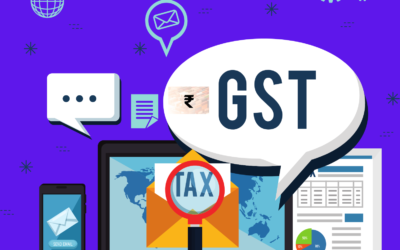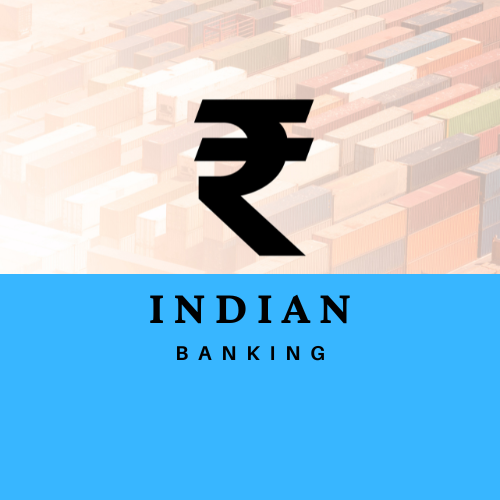Personal Loans
Minimum Loan Amount
Minimum Tenure
Minimum Age
Maximum Loan Amount
Maximum Tenure
Maximum Age
Calculate Your Personal Loan EMI
Benefits Of Personal Loans
Unsecured Nature
Personal loans are typically unsecured, meaning borrowers do not need to provide collateral such as property or assets to secure the loan. This makes them accessible to individuals who may not have valuable assets to pledge as security.
Fixed Interest Rates
Many lenders offer personal loans with fixed interest rates, which means the interest rate remains constant throughout the loan tenure. This provides borrowers with predictability in their monthly repayments, making budgeting easier.
Versatile Use
Borrowers can use personal loans for a wide range of purposes, including medical emergencies, home renovations, wedding expenses, education fees, debt consolidation, travel expenses, or any other personal financial requirement. The flexibility in usage makes personal loans highly versatile.
Flexible Repayment Tenure
Personal loans typically come with flexible repayment tenures ranging from 1 to 5 years or more, depending on the lender. Borrowers can choose a tenure that suits their repayment capacity and financial goals.
Debt Consolidation
Personal loans can be used for debt consolidation purposes, allowing borrowers to combine multiple high-interest debts into a single loan with a potentially lower interest rate. This can help simplify repayment and reduce overall interest costs.
Quick Approval and Disbursal
With advancements in technology and digital processes, many lenders offer quick approval and disbursal of personal loans. Borrowers can often apply online and receive approval within hours, with funds disbursed into their accounts shortly thereafter.
Minimal Documentation
Compared to other types of loans, personal loans often require minimal documentation. Basic identity proof, address proof, and income documents are usually sufficient for loan approval, making the application process hassle-free.
No Need for Co-Signer/Guarantor
Unlike some other loans where a co-signer or guarantor may be required, personal loans typically do not necessitate such arrangements. Borrowers can apply for a personal loan independently based on their own creditworthiness.
No Restrictions on End-Use
Unlike some other types of loans that may have restrictions on how the funds can be used, personal loans in India generally come with no such restrictions. Borrowers have full freedom to utilize the loan amount as per their discretion.
Improvement of Credit Score
Timely repayment of a personal loan can positively impact the borrower’s credit score. It demonstrates creditworthiness and responsible financial behavior, which can be beneficial for future loan applications or credit-related endeavors.
Myths and facts of personal Loan
Myth: Personal loans are only for emergencies.
Fact: While personal loans can be used during emergencies, they are versatile and can be used for various purposes such as debt consolidation, home renovation, wedding expenses, travel, education, etc.
Myth: Getting a personal loan is difficult.
Fact: While eligibility criteria vary among lenders, getting a personal loan in India is relatively easy if you meet the lender’s requirements regarding income, credit score, employment stability, and other factors. Many financial institutions offer online application processes, making it convenient to apply.
Myth: Personal loans have very high-interest rates.
Fact: While interest rates on personal loans may be higher compared to secured loans like home loans or car loans, they vary depending on factors such as the borrower’s creditworthiness, income, loan amount, and tenure. With good credit and a stable income, borrowers can negotiate for lower interest rates.
Myth: You need collateral to get a personal loan.
Fact: Personal loans are typically unsecured, meaning borrowers don’t need to provide collateral such as property or assets to secure the loan. However, lenders may require a good credit score and stable income to approve the loan.
Myth: You can't prepay personal loans.
Fact: Many lenders allow borrowers to prepay personal loans either partially or in full. However, some lenders may charge a prepayment penalty or have specific terms regarding prepayment, so it’s essential to check the loan agreement for such conditions.
Myth: Taking multiple personal loans simultaneously is a good idea.
Fact: While it’s possible to have multiple personal loans, taking on too much debt can strain your finances and affect your credit score. Borrowers should assess their repayment capacity before taking on additional debt and avoid over-leveraging themselves.
Myth: Personal loans are only for salaried individuals.
Fact: While personal loans are commonly availed by salaried individuals, self-employed individuals, business owners, and professionals such as doctors, lawyers, and consultants can also qualify for personal loans by providing proof of income and meeting other eligibility criteria.
Compare interest rates: Research and compare interest rates offered by different banks and financial institutions to find the best deal with the lowest interest rate.
Check eligibility criteria: Ensure that you meet the eligibility criteria set by the lender before applying to avoid rejection, which can negatively impact your credit score.
Read terms and conditions: Thoroughly read the terms and conditions of the loan agreement, including repayment schedule, prepayment penalties, processing fees, and other charges.
Borrow within your means: Borrow only what you need and can afford to repay comfortably within the loan tenure to avoid financial strain.
Maintain a good credit score: A higher credit score increases your chances of loan approval and can help you negotiate better terms and interest rates.
Use loan calculators: Utilize online loan calculators to estimate your monthly installment and total interest payable, helping you plan your finances better.
Opt for a shorter tenure: If feasible, choose a shorter repayment tenure to reduce the overall interest burden and clear the debt sooner.
Don’t borrow for frivolous reasons: Avoid taking a personal loan for unnecessary expenses like luxury items, vacations, or speculative investments.
Don’t overlook hidden charges: Be wary of hidden fees such as processing fees, prepayment charges, late payment penalties, and insurance premiums. Factor these into your cost assessment.
Don’t ignore your credit score: Maintain a good credit score by making timely payments on existing loans and credit cards. A poor credit score can lead to higher interest rates or loan rejection.
Don’t apply with multiple lenders simultaneously: Submitting multiple loan applications simultaneously can negatively impact your credit score and give the impression of credit hunger, potentially leading to rejection.
Don’t default on payments: Missing or delaying loan payments can attract hefty penalties, damage your credit score, and jeopardize your financial health.
Don’t take loans from informal sources: Avoid borrowing from unregistered or informal lenders, as they may charge exorbitant interest rates and resort to aggressive recovery tactics.
Don’t ignore prepayment options: If you have surplus funds, consider prepaying your loan to reduce the interest burden and shorten the repayment tenure, but first, check for any prepayment penalties.
Personal Loan FAQ’s
Remember to carefully read and understand the terms and conditions, including fees, charges, and repayment terms, before applying for a personal loan in India. It’s advisable to compare offers from different lenders to find the best deal suited to your needs and financial situation.
What is a personal loan?
A personal loan is an unsecured loan provided by banks, financial institutions, or online lenders that individuals can use for various personal expenses like medical emergencies, wedding expenses, home renovations, travel, etc.
What are the eligibility criteria for a personal loan?
Eligibility criteria vary among lenders but generally include factors like age (usually between 23 to 55 years), income stability, employment status, credit score, and location of residence.
How much loan amount can I get?
The loan amount depends on various factors such as your income, credit score, existing financial obligations, and the lender’s policies. Typically, personal loans in India range from ₹100,000 to ₹10 lakhs or more.
What is the interest rate for a personal loan?
Interest rates on personal loans are usually higher than secured loans since they are unsecured. Rates vary among lenders and can range from 10% to 24% or more, depending on factors like credit score, loan amount, and tenure.
What is the tenure for repayment?
Personal loan repayment tenure generally ranges from 1 to 5 years, but some lenders offer longer tenures. The tenure depends on the loan amount, your repayment capacity, and the lender’s policies.
How is the EMI (Equated Monthly Installment) calculated?
EMI calculation depends on the loan amount, interest rate, and tenure. You can use online EMI calculators provided by banks or financial websites to determine your monthly payments.
Do I need collateral or a guarantor for a personal loan?
No, personal loans are unsecured, so you do not need to provide any collateral or guarantor. Lenders assess your eligibility based on your income, credit score, and repayment capacity.
Can I prepay or foreclose the loan?
Yes, most lenders allow prepayment or foreclosure of personal loans. However, they may charge prepayment penalties, so it’s essential to check the terms and conditions before doing so.
How long does it take to get a personal loan approved?
With the advent of digital processes, many lenders offer instant or quick approval of personal loans, often within a few hours to a couple of days, provided all documents are in order.
What documents are required for a personal loan application?
Common documents include identity proof, address proof, income proof (salary slips, bank statements), and photographs. The specific documents required may vary among lenders.
News & Blog
Recent posts
The term “latest posts” implies that these are the most recently created or published pieces of content. It could include news articles, blog posts, product updates, or any other type of information that the website regularly shares with its audience. The goal is to keep visitors informed about the latest developments or topics of interest on the site.
5 Common Mistakes to Avoid While Applying for a Loan
When applying for a loan, avoiding certain mistakes can improve your chances of approval and help you secure better terms. Here are five common mistakes to avoid: 1. Not Checking Your Credit Score First Many borrowers skip the step of reviewing their credit score...
What Are MSME Loans and How Can They Help Your Business?
MSME Loans are financial products designed specifically to support Micro, Small, and Medium Enterprises (MSMEs). These loans aim to provide the necessary capital for businesses to grow, maintain operations, and meet financial requirements. Here's a breakdown of what...
Exploring Secured vs Unsecured Loans: Which One Should You Choose?
When deciding between a secured or unsecured loan, understanding the differences, advantages, and risks of each can help you make a well-informed choice. Here's a breakdown of secured and unsecured loans: 1. Secured Loans A secured loan is backed by collateral, which...
Top Benefits of Choosing a Digital Lending Platform
Digital platforms are poised to be the future of lending in India for several key reasons. The country's unique blend of technological growth, financial inclusion efforts, and a young, digitally-savvy population sets the stage for these platforms to reshape the...
Personal Loans
Personal loan eligibility criteria in India vary from one lender to another, but there are common factors that financial institutions generally consider when evaluating an applicant's eligibility. These factors help determine whether the borrower is capable of...
Business Loans
A business loan can lead to business growth or business loss, depending on how it's managed. Here’s a breakdown of how each scenario could unfold: Business Growth A business loan can fuel growth when: Invested wisely: Funds are used to expand operations, buy...
how GST impacts lenders’ operations or how changes in GST policies affect them in india?
Goods and Services Tax (GST) has a significant impact on various industries in India, including the lending sector. Lenders, including banks and non-banking financial companies (NBFCs), are affected by GST in several ways. Here’s how GST influences their operations...
How to Increase Your CIBIL Score
Improving your Credit Information Bureau (India) Limited (CIBIL) score is essential for obtaining better loan terms and financial opportunities. Here are some steps you can take to increase your CIBIL score in India: Pay Your Bills on Time: Timely repayment of loans...
Indian Banks
Indian banks play a crucial role in the country's financial system, offering a wide range of banking services to individuals, businesses, and government entities. Here are some key points about Indian banks: Types of Banks: Indian banks can be broadly classified into...
What types of bank loans available in india
In India, a wide range of bank loans are available to meet the diverse financial needs of individuals and businesses. Here’s an overview of the most common types of loans: 1. Personal Loan Purpose: For personal use such as medical emergencies, weddings, travel, or any...














